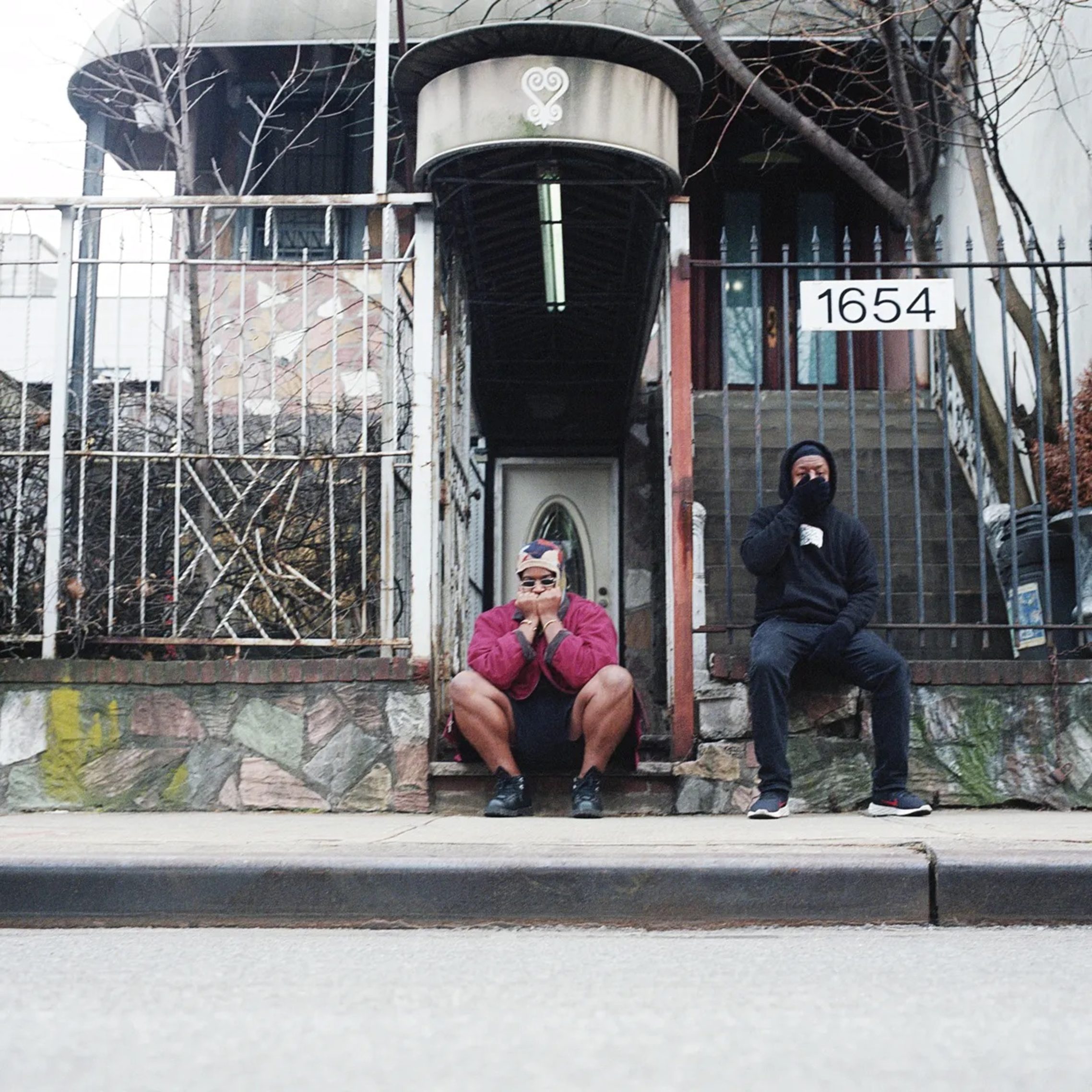Stickers proclaiming ‘We Buy Test Strips’, accompanied by a phone number, are emblazoned across the lampposts, shop fronts and electrical boxes of the streets of New York – the home of rappers billy woods and Elucid. They advertise the practice of buying test strips, used by diabetics to monitor their blood sugar levels, from those with health insurance who often receive more strips than they need, and selling them on to uninsured people who rely on them to manage their diabetes. This absurd practice, spinning out of the chasm of inequality created by the American for-profit healthcare model, is indicative of the surreal madness of modern urban life captured by woods and Elucid, who perform together as Armand Hammer in their latest project.
“The two rappers lyrically present an abstract haze of feelings, images and micro-narratives which compound into a tapestry of nervous, metropolitan dread.”
With this album, Armand Hammer along with a cast of alternative hip-hop collaborators including JPEGMafia, El-P and Moor Mother, invoke a sense of feverish anxiety. Sonically, the record abruptly skips between tracks such as the harsh industrial ‘Trauma Mic’ with bin lid cymbals and heavily distorted, double tracked vocals and the jazz rap production of ‘The Flexible Unreliability of Time and Memory’ accompanied by the beautiful flute playing of Sons of Kemet’s Shabaka Hutchings.
The two rappers lyrically present an abstract haze of feelings, images and micro-narratives which compound into a tapestry of nervous, metropolitan dread. On the opening song, ‘Landlines,’ woods interweaves lyrics about the stress of a precarious life, ‘duffel bag hold my pension… I’m not for them trenches’ with incisive commentary, ‘lawyers split their cases but n****** got the same sentences’. Towards the end of the song he imagines an idealised family life however with a dark caveat, ‘I wanna buy me a home and sit on the stoop… put my family under one roof, Only go inside once I hear ‘em start to shoot’.
Central to the anxiety in this album is the increasingly insidious development of technology. Woods repeats, ‘Woke up and asked Siri how I’m gonna die, she replied, she replied’ on the record’s second track while Elucid affirms ‘I feel a way about providing my identity to robots’.

Woods also confronts the residual apathy one is left after being overrun with this confusion in the modern world, going as far to boldly reference sending the 2003 ricin letters for amusement, ‘A piece of the sky priceless, but you know me I toss it in the recycling, Lost that university stipend, tossed ricin in USPS for the excitements’.
This album marks another achievement in billy woods’ remarkable run of albums in recent years. A run that’s consistent quality places him among the best MC’s de nos jours. This run includes the deeply personal tour travelogue ‘Maps’ which was released in March of this year, following on from his academic exploration of African history and the black diaspora on ‘Aethiopes’. While both woods and Elucid share a similar abstract rap style, the former’s talent for evocative imagery, ‘Still made my shift appropriately lit for the graveyard’ and interspersing narrative in his verses makes him stand out. Elucid’s variety in his flow and tone of voice is certainly compelling; however when listening to this record I find myself eagerly awaiting woods’ contributions.
“It’s an album that laments the present we live in and prophecies an even darker future.”
Wood’s sharp sense of humour is a surprising contribution to such a dark record. Contrasting with his sincere delivery, he includes some brilliantly funny asides, ‘I suggest you leave the police sketch half drawn like you just realized they describing Allah’ as well as some biting political satire, ‘Holes in the dirt, firing squads, that’s a few more working class jobs’.
Wood’s weaponry of historical references and allusions which formed the centre of ‘Aethiopes’ is certainly not absent here and supplements the depth and richness of the album. He compares his closely guarded privacy (woods has never revealed his real name or face) with the founder of the Nation of Islam ‘I came, I saw, flipped a couple mitts and dipped like W.D. Fard’. Of the little we have about the rapper’s backstory, we know that his father was involved in the Zimbabwean revolution and subsequently a member of Robert Mugabe’s government. On ‘The Gods Must Be Crazy’ woods raps ‘Zimbabwe Rhodesia… Henry Kissinger my album’s only feature’ referencing the former US Secretary of State’s role in the Zimbabwean revolution while also giving us the amusing idea of Kissinger’s monotonous, forlorn voice trading verses with woods.
‘We Buy Diabetic Test Strips’ is a beautiful, paranoid portrayal of the insanity of urban living. Through its glitchy production, constant beat switches and pendulous style combined with incisive, abstract lyrics, this record perfectly invokes the constant stimulation, noise and energy of this modern way of living. It’s an album that laments the present we live in and prophecies an even darker future.
Thank God it’s only an album.
WORDS: Ciarán Drohan



